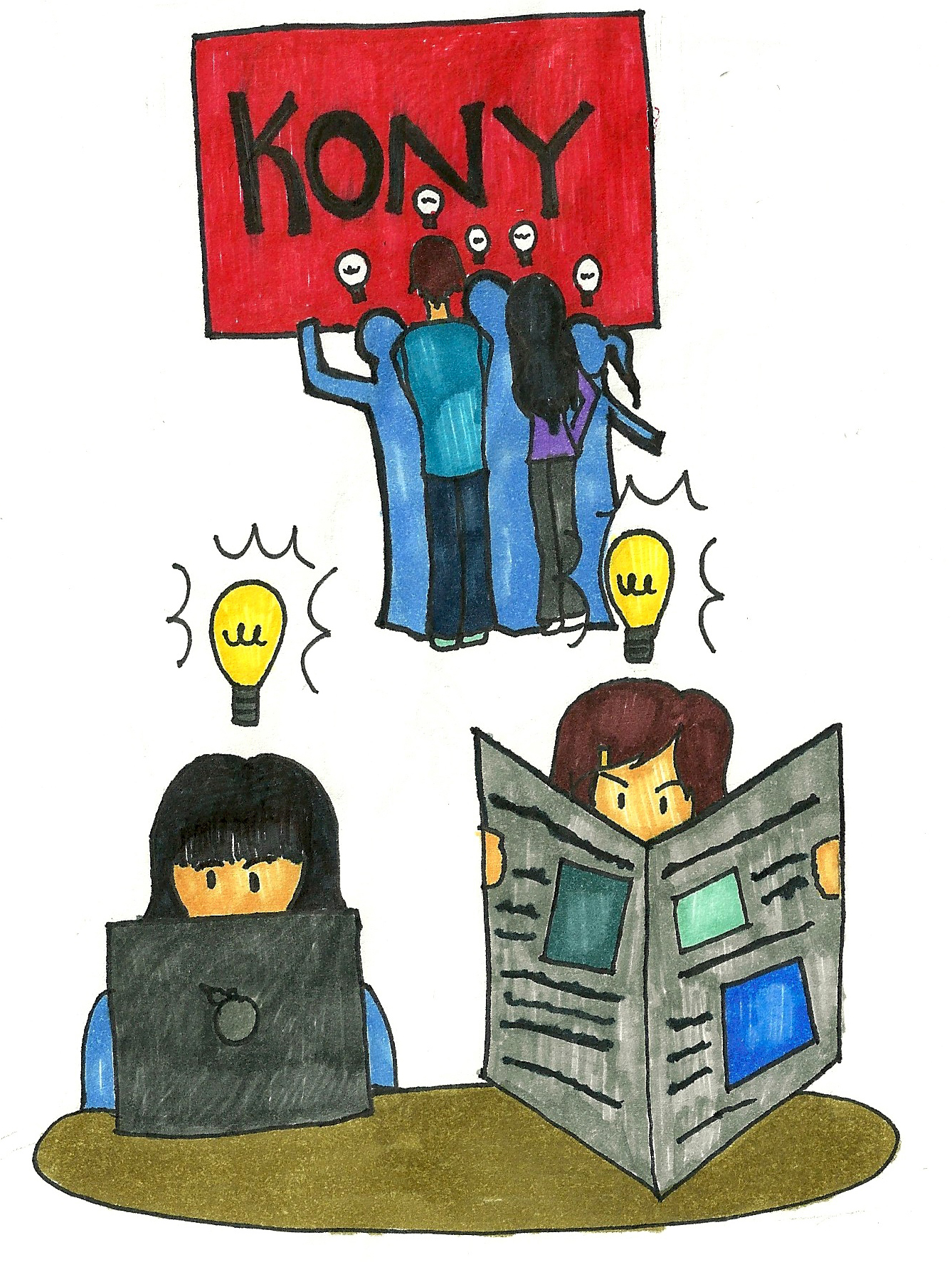Students need to engage in a more meaningful debate on “˜Kony 2012′ that goes beyond social media

By Charley Guptill
April 12, 2012 12:16 a.m.
As a college student with a Facebook account, I heard about the “Kony 2012″ campaign the night it launched. The 30-minute video, created by Invisible Children, a nonprofit organization that seeks to educate people about the crimes committed by the Lord’s Resistance Army in Central Africa, spread faster than any other Internet video in history.
Criticisms of the campaign also emerged immediately and spread across the Web just as fast.
But we need to engage in a more meaningful discussion than what is on our Facebook pages and the blogosphere.
It is important for us to seek a broader and more complex understanding of the campaign, its criticisms, and ultimately, its implications for Central Africa.
Invisible Children, which largely targets high school and college students, is a highly visible organization, but the “Kony 2012″ campaign has either created believers or molded dissidents out of its target audience.
Fortunately, as UCLA students, we have the unique opportunity to engage in discussion about this campaign through resources on campus. Invisible Children has its own chapter at UCLA, and the UCLA African Studies Center is interested in reacting and responding to this campaign in an intellectual and appropriate way.
Invisible Children at UCLA is already contributing to such discussion. On Tuesday, the group hosted a movie screening about Joseph Kony and the Lord’s Resistance Army, followed by a Q-and-A session. Ann Wang, a third-year international development studies student and president of Invisible Children at UCLA, said the Q-and-A session was a good way to allow students address some of the criticisms they heard about the campaign and the organization.
It is important to remember that “Kony 2012″ is one of many campaigns put on by Invisible Children and that the organization has accomplished many things in the ways of both awareness and programs on the ground, said Jillian Tsacoyeanes, a first-year international development studies student and public relations coordinator for Invisible Children at UCLA.
The UCLA African Studies Center, too, has already taken steps in addressing the campaign and the situation in Central Africa. The center’s website now features a comprehensive guide that informs educators on ways to address the issues raised by the “Kony 2012″ campaign.
The guide, which was created on behalf of the Outreach Council of the African Studies Association, is broken down into five parts, each highlighting a particular aspect of how to thoroughly examine and discuss the campaign. The guide includes a history of the conflict, ways to educate students in the classroom about the issue, discussion questions regarding media literacy and a blueprint for students on ways to take action.
Both Invisible Children and the African Studies Center should continue the work that they are doing and strive to encourage discussion whenever they can.
For example, Invisible Children should plan on hosting more movie screenings or forums where issues surrounding its “Kony 2012″ campaign can be discussed. There have been a number of criticisms leveled at the campaign, namely that the campaign grossly oversimplifies the complex issues surrounding Kony’s capture, and it would benefit Invisible Children to be able to respond to students directly as opposed to through public relations announcements made through its website.
Similarly, the UCLA African Studies Center should look for ways to expand student discussion. An effective and intellectual discussion may be prompted through a lecture on the subject of the “Kony 2012″ campaign and the political and social realities of Central Africa, which some argue are far more complex than those portrayed by Invisible Children.
Edmond Keller, a professor of political science at UCLA and member of the African Studies Center, has already been interviewed for a radio talk show in which he discussed the history and complexity of conflict in Central Africa. Faculty members such as Professor Keller could be asked to lecture on the issue.
It is important for students to be a part of these sorts of discussions. A proposal for a new General Education requirement that would focus on communities and conflicts in the modern world is currently being considered by faculty in the College of Letters and Science. Such a proposal indicates that academia is invested in issues like the ones raised by the “Kony 2012″ campaign.
As UCLA students, it is our duty to examine this issue comprehensively ““ a task we can accomplish if the students in Invisible Children continue to serve as the link between the larger organization and our campus, and if the experts and professors in the African Studies Center continue their research and teachings. Ultimately, however, it is also up to us as students to engage in the discussions that are presented to us.
Email Guptill at
[email protected]. Send general comments to [email protected] or tweet us @DBOpinion.

